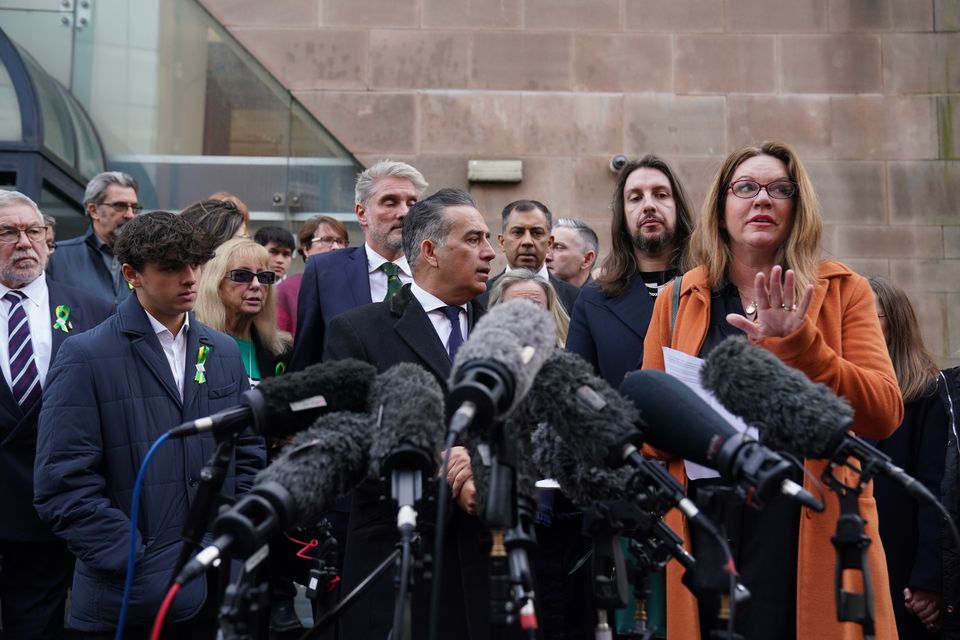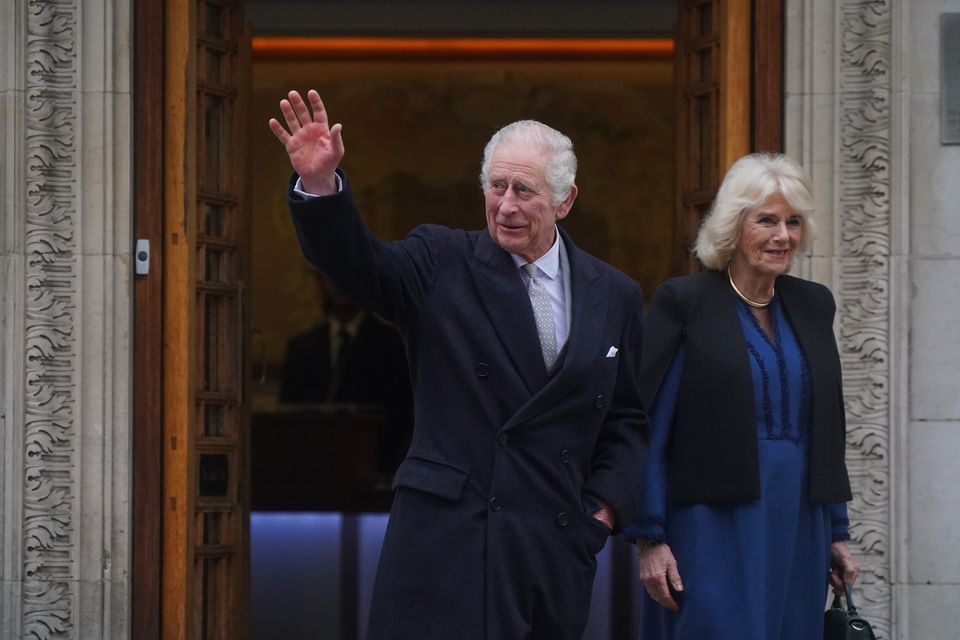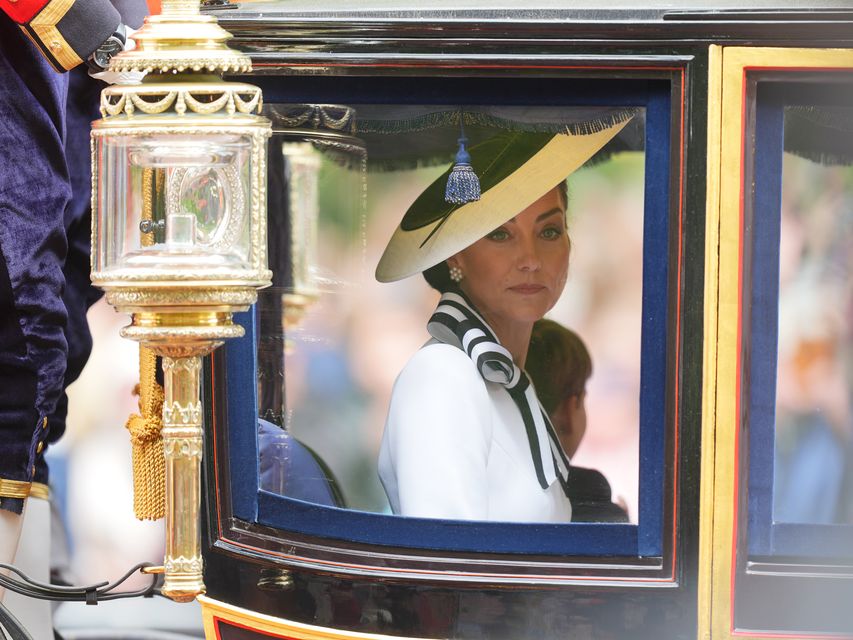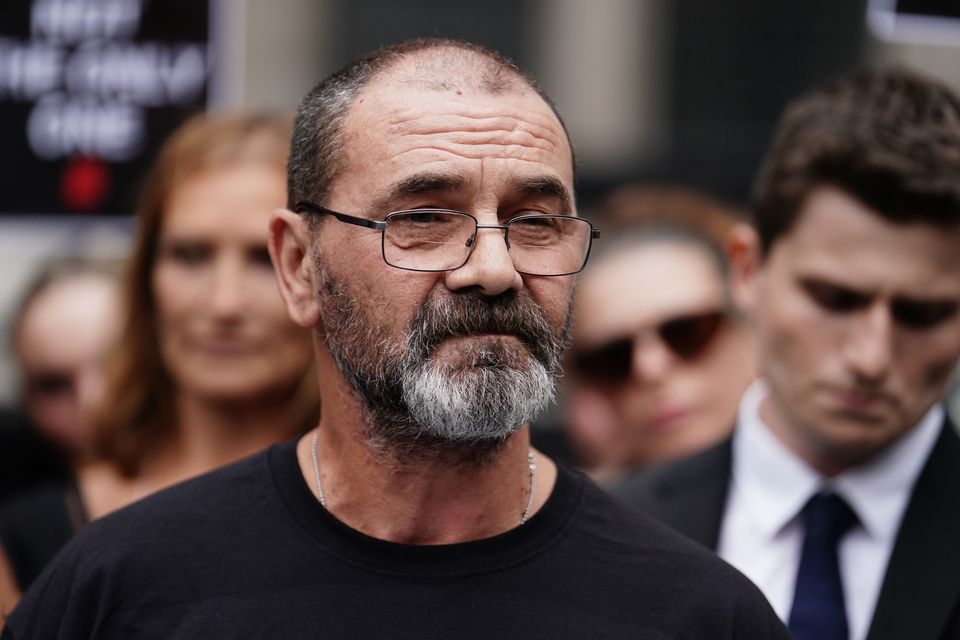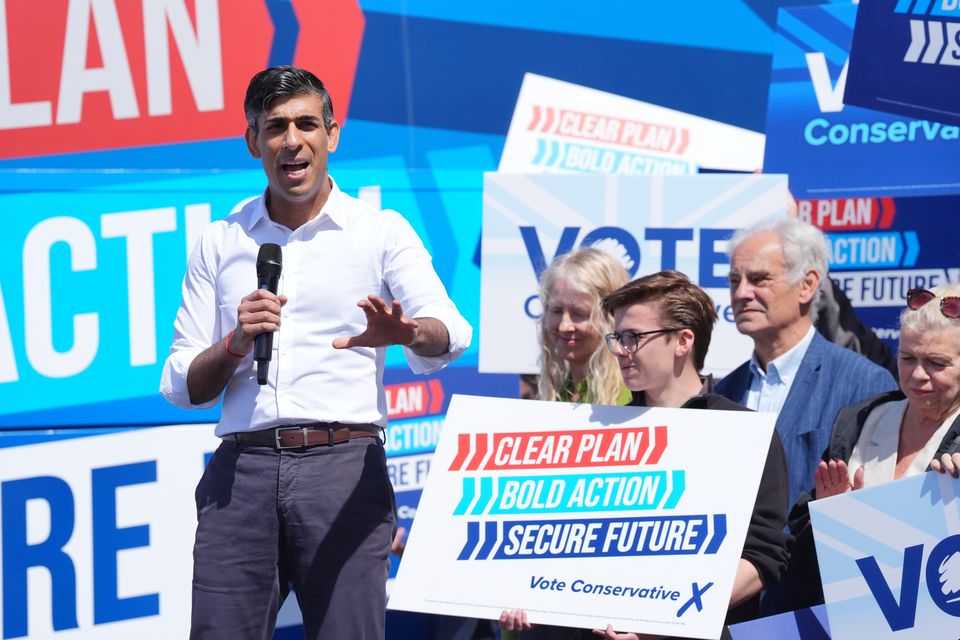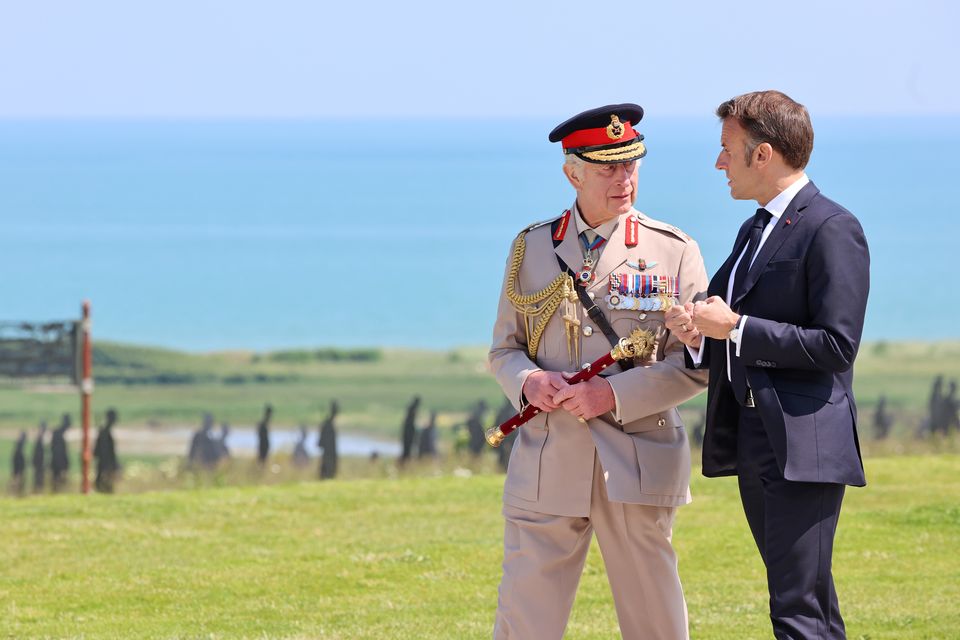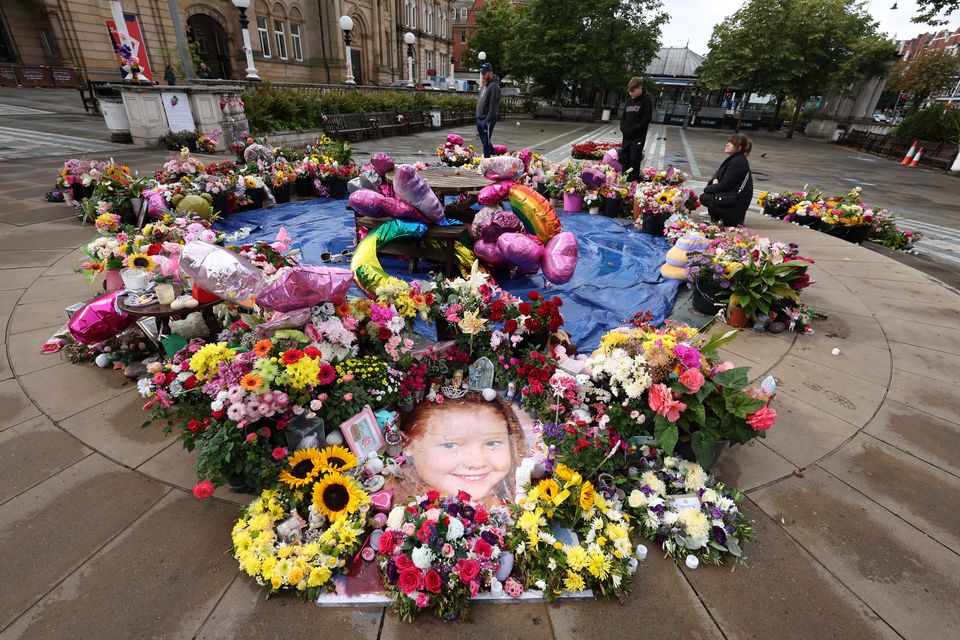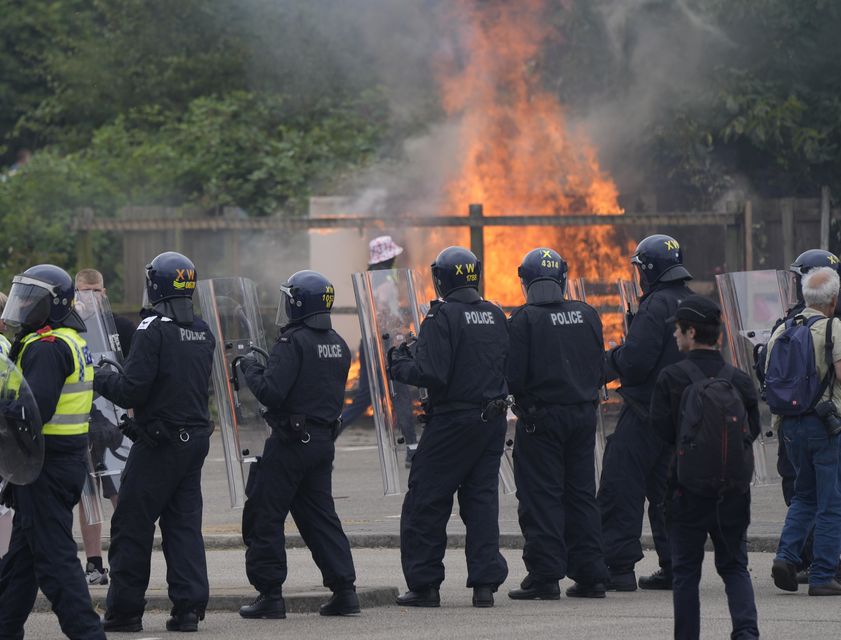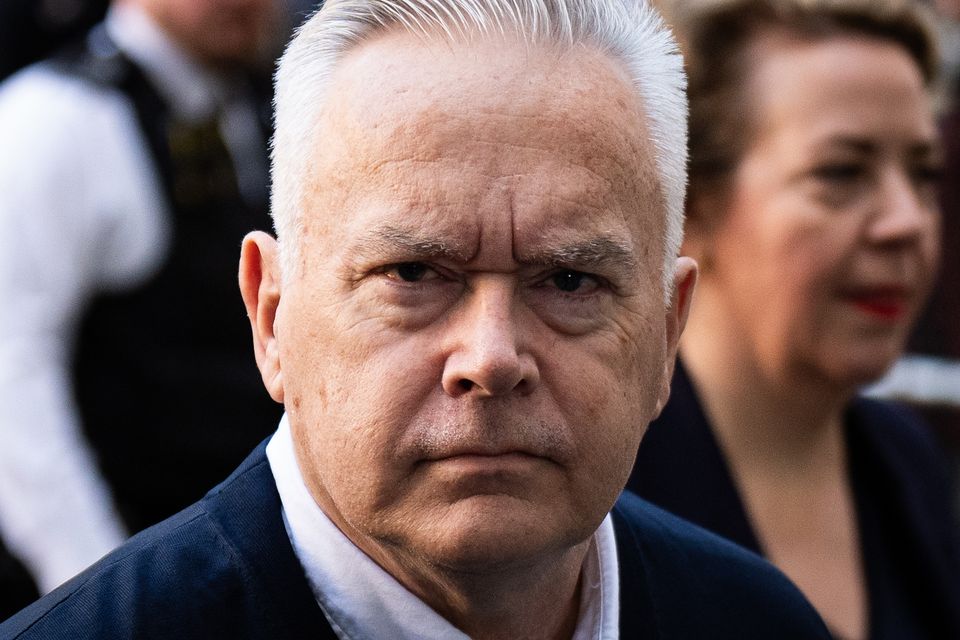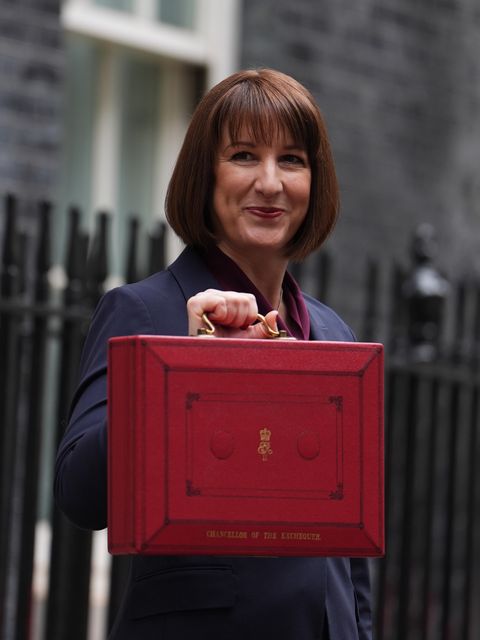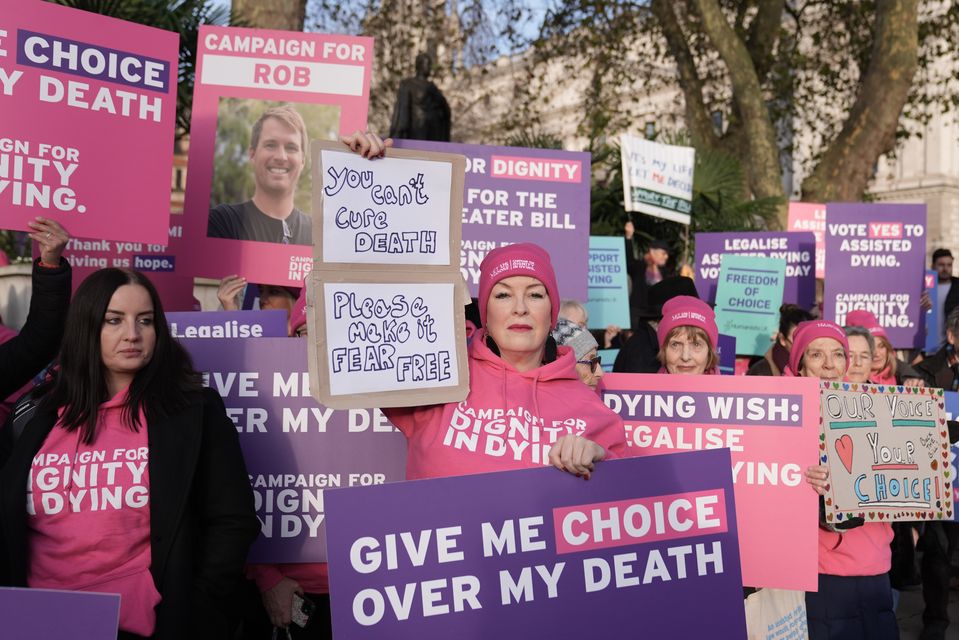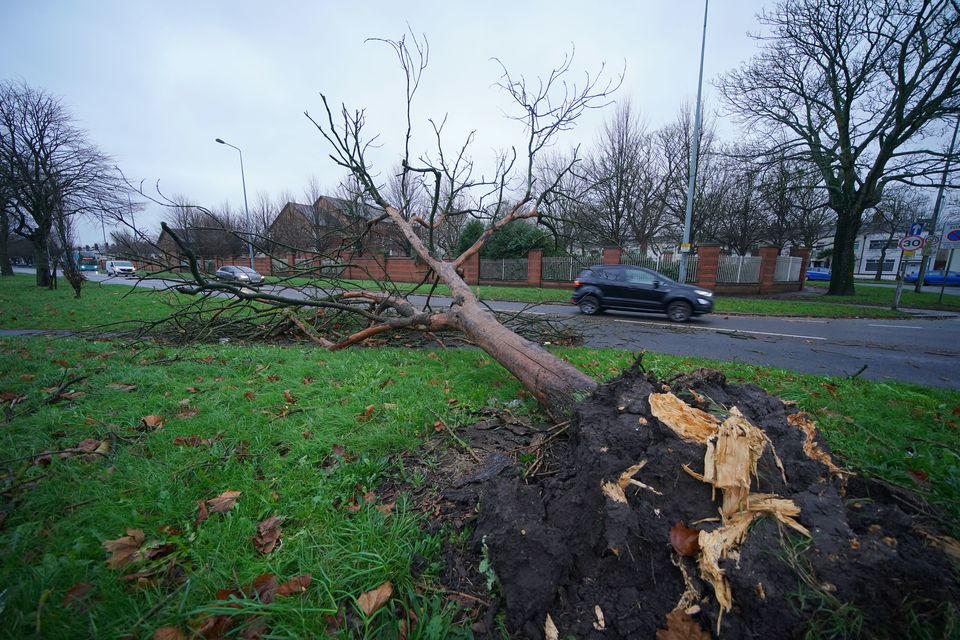A general election which marked the end of 14 years of successive Conservative governments, a series of shock health announcements from the royal family and riots across the country sparked by the Southport attack have characterised the year 2024.
There were major developments beyond the UK too, with the conflict in the Middle East expanding and Donald Trump securing a second term in the Oval Office after his victory over Kamala Harris in the US presidential election.
Here the PA news agency takes a look at the key events that made up 2024.
Relatives of Valdo Calocane’s victims said they had been ‘let down’ after the Nottingham killer was sentenced to a hospital order for manslaughter (Jacob King/PA)
– January
The Princess of Wales and the King were both in hospital in January, with Kate undergoing abdominal surgery while Charles received treatment for an enlarged prostate.
The Duchess of York announced she had been diagnosed with malignant melanoma following the removal of a cancerous mole during treatment for breast cancer, with her spokesman saying she remained “in good spirits”.
Valdo Calocane, who killed three people and injured three others in a stabbing spree in Nottingham city centre in June 2023, was sentenced to a hospital order after admitting manslaughter by diminished responsibility and attempted murder.
Prosecutors accepted his pleas of not guilty to murder on the grounds of diminished responsibility due to mental illness, which prompted then-attorney general Victoria Prentis to order an independent review of the Crown Prosecution Service decision.
Overseas, the Royal Air Force carried out targeted strikes against Houthi facilities in Yemen following attacks on shipping in the Red Sea, with US forces also bombing sites used by the Iranian-backed group.
The King underwent a procedure at the London Clinic in January before he announced his cancer diagnosis the following month (Victoria Jones/PA)
– February
The King announced he had been diagnosed with a form of cancer and had begun a schedule of regular treatments, prompting well-wishes and praise for his candour about his health difficulties.
Tragedy struck elsewhere in the royal family in February with the death of Thomas Kingston, the husband of Lady Gabriella Kingston and son-in-law of Prince and Princess Michael of Kent.
On leap day, a damning report was published following an inquiry by chairwoman Lady Elish Angiolini which concluded Sarah Everard’s killer Wayne Couzens should never have been given a job as a police officer and chances to stop the sexual predator were repeatedly ignored and missed.
The death of Russian opposition politician and Putin critic Alexei Navalny shook the world, and later in the month the King praised the “determination and strength” of the Ukrainian people in a message marking the second anniversary of Russia’s invasion.
The Princess of Wales scaled back on public engagements after announcing her cancer diagnosis (James Manning/PA)
– March
The Princess of Wales announced she was undergoing chemotherapy treatment for cancer, ending public speculation over her wellbeing – including conspiracy theories about her whereabouts – and saying in an emotional video message: “I am well and getting stronger every day.”
Her announcement sparked an international outpouring of support, with Charles said to have been “proud” of his “beloved” daughter-in-law for her “courage” in speaking about her treatment.
In the world of showbiz, nuclear physicist biopic Oppenheimer triumphed at the Oscars with Irish star Cillian Murphy winning best actor, British film-maker Christopher Nolan best director, and Robert Downey Jr best supporting actor for the film named best picture.
Andrew Malkinson served 17 years in prison for a rape he did not commit (Jordan Pettitt/PA)
– April
The Criminal Cases Review Commission offered an “unreserved apology” for failing Andrew Malkinson, who spent 17 years in prison after being wrongly convicted of rape.
Iran launched drone strikes against Israel, which then-prime minister Rishi Sunak condemned “in the strongest terms” as “reckless”, with G7 leaders saying they “stand ready to take further measures now and in response to further destabilising initiatives”.
Controversy marred the Scottish National Party when Peter Murrell, former chief executive of the SNP and husband of ex-first minister Nicola Sturgeon, was charged in connection with embezzlement of funds from the party following a Police Scotland investigation into its finances.
Rishi Sunak launched the Conservative campaign bus at Redcar Racecourse in the North East of England (Jonathan Brady/PA)
– May
Mr Sunak called a general election for July 4, saying he would prove that only a Conservative government led by him will “deliver a secure future” for the UK while Labour’s Sir Keir Starmer told voters: “Together we can stop the chaos, we can turn the page, we can start to rebuild Britain.”
Milestones were reached in major public inquiries as the final report of the Infected Blood Inquiry was published – with chairman Sir Brian Langstaff saying the contaminated blood disaster is “still happening” – and former Post Office chief executive Paula Vennells apologising for “all that subpostmasters and their families have suffered” as she gave evidence to the Horizon IT Inquiry.
Mr Trump was convicted of all 34 counts in his New York hush money trial.
Charles led the UK in marking the 80th anniversary of the D-Day landings in France (Chris Jackson/PA)
– June
The King led the nation in commemorating D-Day veterans on the 80th anniversary of the landings, telling veterans at an event in Ver-sur-Mer, France: “It is with the most profound sense of gratitude that we remember them and all who served at that critical time.”
Mr Sunak sparked criticism when he left the memorial events early to take part in a TV interview.
Elsewhere in Europe, TV doctor and columnist Michael Mosley was found dead after being reported missing while on holiday on the Greek island of Symi.
WikiLeaks founder Julian Assange secured the freedom he had long fought for after pleading guilty in a deal with US authorities which saw him sentenced to time already served in Britain, allowing him to return home to Australia.
Three little girls were killed in stabbings in Southport (Paul Currie/PA)
– July
Labour won the general election, with new Prime Minister Sir Keir telling the nation in his victory speech: “Today we start the next chapter, begin the work of change, the mission of national renewal and start to rebuild our country.”
The new Government was quickly forced to grapple with nationwide unrest after three little girls – six-year-old Bebe King, seven-year-old Elsie Dot Stancombe and Alice da Silva Aguiar, nine – were fatally stabbed in an attack at a Taylor Swift dance event in Southport, Merseyside.
The day after the attack, thousands of people turned out for a peaceful vigil in the town but a separate protest erupted into violence outside a mosque in the town later.
In sport, England lost 2-1 to Spain in the Euro 2024 final in Berlin, while Team GB earned 14 gold medals during the Paris Olympics, with Paralympics GB earning 49 golds in their events.
An anti-immigration demonstration took place outside the Holiday Inn Express in Rotherham in August (Danny Lawson/PA)
– August
In the week following the Southport attack, many protests held in dozens of towns and cities across the country descended into violence and rioting, with asylum centre hotels particularly targeted.
More than 1,000 arrests were made and hundreds of people have since been charged and jailed.
Tragedy struck when seven people died in the sinking of a luxury yacht off the coast of Italy, including British technology tycoon Mike Lynch and his daughter Hannah.
August also marked the retirements of two British sporting stars, with Sir Andy Murray playing his final professional tennis match and five-time Olympic medallist Tom Daley announcing the end of his diving career.
Manchester musicians Liam and Noel Gallagher announced Oasis’s long-awaited reunion with a worldwide tour for the estranged brothers in 2025.
Former BBC broadcaster Huw Edwards was sentenced at Westminster Magistrates’ Court (Aaron Chown/PA)
– September
After months of health challenges for the royal family, Kate shared a positive update that she had finished chemotherapy and planned to return to royal duties, adding: “To all those who are continuing their own cancer journey – I remain with you, side by side, hand in hand.”
In the courts, former BBC new presenter Huw Edwards was sentenced to six months’ imprisonment suspended for two years after admitting accessing indecent images of children.
A host of sexual assault allegations emerged against Mohamed Al Fayed, the Egyptian billionaire who owned London department store Harrods for more than 25 years and died last year.
The final report of the Grenfell Inquiry was released, in which chairman Sir Martin Moore-Bick concluded that all 72 deaths in the 2017 tower block fire were avoidable and the people who lived in the London building were “badly failed” by authorities and the construction industry through incompetence, dishonesty and greed.
Rachel Reeves was the first woman to deliver a Budget (Jordan Pettitt/PA)
– October
Chancellor Rachel Reeves, the first woman in the role, promised to “invest, invest, invest” in the first Labour Budget since 2010.
The change to agricultural inheritance tax proved one of the most controversial proposals and resulted in more than 10,000 farmers and their supporters descending on Whitehall in protest the following month.
The death of 31-year-old Liam Payne, a former member of boyband One Direction, shocked the world after he fell from a hotel balcony in Buenos Aires, Argentina.
Charter flights carried Britons out of Lebanon amid growing conflict in the Middle East.
The assisted dying bill passed its first hurdle in Parliament (Stefan Rousseau/PA)
– November
Mr Trump secured a second term in office after winning the US presidential election in what he described as a “magnificent victory for the American people”.
Kemi Badenoch was elected as the new Conservative Party leader, saying in her first speech that the Tories had to be “honest” about the “fact we made mistakes” and “the fact that we let standards slip”.
In a historic Commons vote, a proposed law to legalise assisted dying in England and Wales cleared its first parliamentary hurdle, with the Prime Minister among supporters.
The Church of England was rocked in November, when Archbishop of Canterbury Justin Welby announced he will resign after facing mounting over his handling of the John Smyth abuse case.
Storm Darragh swept across parts of the UK (Peter Byrne/PA)
– December
Marking the festive season, the Princess of Wales made a rare public appearance at her annual Christmas carol service at Westminster Abbey in celebration of the positive qualities found in many, speaking of the “challenging times” in 2024.
The Prime Minister gave a speech at Pinewood Studios setting out six milestones that he said would allow the public to “hold our feet to the fire” on the missions he set for himself before the election.
And after a series of storms in quick succession, Storm Darragh brought winds of more than 90mph, with the Government issuing a “risk to life” alert for people in Wales and south-west England.
Sara Sharif’s father and stepmother were jailed for life for the horrific “torture” and “despicable” abuse culminating in the 10-year-old’s murder in Woking.
Syrian president Bashar Assad was ousted by rebel forces Hayat Tahrir al-Sham (HTS), ending his family’s five-decade regime.
The Duke of York, who said earlier in the month he had “ceased all contact” with a businessman accused of being a Chinese spy when concerns were first raised, was absent from the royal family’s Christmas celebrations.
